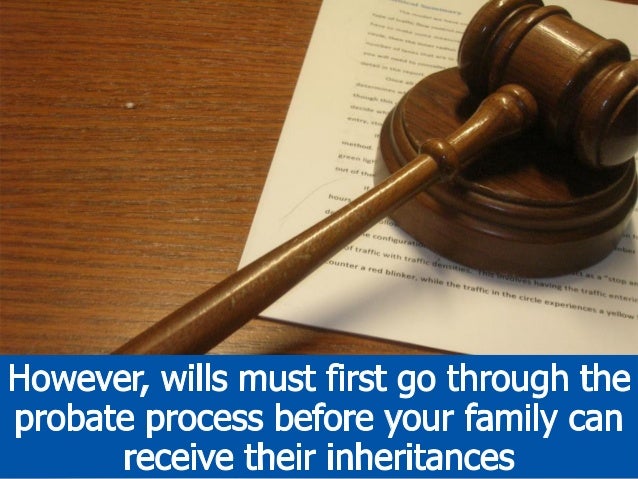
Do accounts with beneficiaries have to go through probate? Avoiding Probate with Transfer-on-Death Accounts and. Do joint accounts avoid probate? Do checking accounts have beneficiaries?
Does pod avoid probate? How to check my checking account balance online? However, this is not always the case. Every executor named on the grant of probate may need to be present when you withdraw assets. Plan to review your beneficiary.
Have some difficulty with the previous as they all seem to be saying twaddle. You have no automatic right to see the will unless you. But: ALL estates have to go through probate, and if someone knows about a will and does not take it to probate they are in trouble. The ownership of the account (joint tenants with right of survivorship) or the beneficiary designation takes precedence over your will.
Those assets will be transferred directly to recipients without going through a long, tedious, and expensive probate process. Your will actually doesn’t become effective until it has been entered into probate. When Can an Account Beneficiary Claim Account Assets? After your death, the beneficiary has a right to collect any money remaining in your account.
The bank will have a copy of the form you filled out naming them the beneficiary. No waiting for probate. If your beneficiary dies before you or at the same time as you, the proceeds will have to go through probate so they can be distributed with your other assets.
Most people know they can have a bank account with more than one signer. In this situation, both people have access to the funds in the account. A beneficiary designation, however, is different. Many states have laws that allow you to designate a beneficiary of your bank and investment accounts or individual stock certificates after you die. Also, a handful of states recognize TOD or beneficiary deeds or enhanced life estate deeds.
Although there are some exceptions, it is usually against the law for you to start sharing out the estate or to get money from the estate , until you have probate or letters of administration. Some assets, such as insurance policies and retirement accounts , do not have to go through probate. That is because these assets usually have a designated beneficiary who is named at the time the account is created.
Anytime you have an account with a named beneficiary, special rules apply. The beneficiary then, as long as they can prove their identity, can ask the bank to transfer the funds to them, without the need to go through probate. Jointly owned bank accounts with a right of survivorship. Many married couples have joint bank accounts. In a joint bank account , all the joint owners can make withdraws at any time while they.
As with any kind of asset owned by the deceased person, how you deal with bank accounts depends on how the person owned them. Solely Owned Bank Accounts If the deceased person owned the account in his or her own name, and did not designate a payable-on-death beneficiary, then the account will probably have to go through probate. Some offer a streamlined process for assets that are below a certain amount, generally $2000.
A bank account owned alone without any designated beneficiaries would typically need to go through probate. Brokerage accounts , on the other han generally pass to your beneficiaries through your will and must go through probate first, which can be time-consuming, public and expensive in some states. Your assets may include a checking account, savings account, money market account, or certificate of deposit held at a bank. There are several ways to keep these accounts out of probate. To avoid having to probate real estate, this can be accomplished with a quitclaim deed.
Property with a designated beneficiary. Life insurance policies have designated beneficiaries. Banks and similar financial accounts (including IRAs) may also have someone designated as a beneficiary in the event of death. Couples may also have joint bank or building society accounts.
This is called Pay-On-Death (or POD). If one dies, all the money will go to the surviving partner without the need for probate or letters of administration. The bank may need the see the death certificate in order to transfer the money to the other joint owner. Probate or letters of administration may still be needed if there are other assets that are not jointly owned. A popular alternative to probate in the U. TOD) account, which is a special type of investment account recognized under state law.
When the account owner dies, the remaining assets will pass directly to the TOD beneficiary previously named by the owner without going through the probate process. The bank and the beneficiary you name will do the rest, bypassing probate court entirely.
No comments:
Post a Comment
Note: only a member of this blog may post a comment.